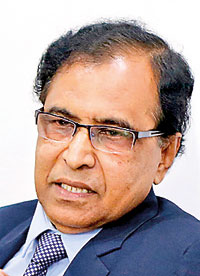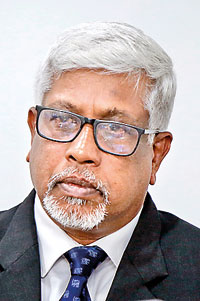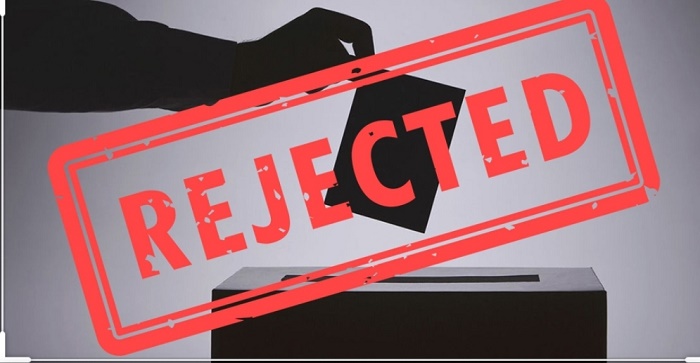Figures of rejected votes in Sri Lanka show that numbers jumped 6 fold after the preferential voting system was introduced in 1978 constitution.
in the 1977 election rejected votes were only 0.5% while the percentage of votes was 86.7. In 1989 when the first election held after the 1978 new constitution was introduced the rejected votes jumped to 6.1% while the percentage of votes went down to 63.6.
In the 2024 parliamentary election rejected votes were 5.6% while the percentage of votes was 68.9. In numbers, it came close to one million votes.
A report by the Sunday Times explains the Election Commission’s efforts to understand the reason behind the high rejected votes.
The news report:
The high number of rejected votes in the recently concluded parliamentary elections has drawn the attention of the Election Commission.
“The community and political party members showed great interest in understanding why votes were rejected in the last parliamentary elections, so I requested that the sealed document containing the report be opened to examine the exact reasons behind the rejection of ballot papers,” Election Commission Chairman R.A.M.L. Rathnayake told the Sunday Times.

R.A.M.L. Rathnayake
The EC provided a detailed checklist to all counting centres and chief counting officers in each counting hall. Using this checklist, the officers were required to prepare a report specifying the reasons for the rejection of ballot papers.
This was carried out simultaneously with the vote-counting process. Reports were securely sealed and stored in safes located at the district offices of the EC.
Some of the reasons included in the checklist were casting votes for more than one political party or independent group, failure to cast a vote, or intentionally spoiling the ballot by marking a cross or other symbols,” said Mr Rathnayake.
“Unlike previous elections, the recently concluded parliamentary elections drew significant public and political attention regarding the rejected votes. As a result, we had to unseal the document to examine and address the reasons for these rejections,” he told the Sunday Times.
In the 2015 parliamentary elections, the percentage of rejected votes was 4.58%. However, this figure rose to 5.65% in the recently concluded 2024 parliamentary elections, according to the report.

Saman Sri Rathnayake
“This document is not considered essential and serves only as a reference. I am not certain how many chief counting officers completed this report. Once prepared, the report was sealed and securely stored in a safe. As a confidential document, it cannot be accessed or disclosed without our permission,” the chairman said. “However, this time, I intend to open it to identify the primary reasons for the rejection of votes. The details will only be shared with individuals who genuinely need to know.
“I recall one election where I reviewed the reasons for vote rejections. Most cases were due to confusion during voting, voters marked more than one political party, crossed out the ballot papers, or, in some instances, simply dropped their ballots into the boxes without marking them.
“This time, we also encountered reports of confusion during voting. Some voters mistakenly cast their votes for independent groups, instead of marking their preference for a specific party member. We received complaints from several districts regarding this issue in the current election.’’
In Sri Lanka, the confusion during voting often arises when multiple parties or independent groups are nominated, sometimes with similar symbols, and similar names.
“While every citizen has the right to contest elections, the growing number of smaller parties seeking nominations has become a challenge for a country like ours, especially as some lack the capacity to manage anything beyond adhering to the law. To address this, we proposed increasing the nomination deposit, but it is still awaiting approval in Parliament’s final reading. It’s important to raise awareness among political parties to help manage election costs effectively,” he said.
Commissioner General of Elections, Saman Sri Rathnayake, said that political parties bear significant responsibility for the high percentage of rejected votes in the parliamentary elections in November.

He explained that many Sri Lankan voters are reluctant to vote for parties that they perceive as losers. This is further escalated by political leaders and members campaigning to be elected as the “best opposition party” rather than aiming to secure victory, he noted.
But, the commissioner general, told The Sunday Times that the reasons for rejected votes can only be determined through the courts, as outlined in the provisions of the Parliamentary Acts. “We cannot disclose the reasons for the rejections, and even the courts are not authorised to challenge or question the rejected votes. Furthermore, officials at the counting centres are strictly prohibited from revealing any details about them.’’
He said that in the recent election, many parties aimed to secure the opposition leader position rather than winning outright.
“When we watch a game and sense that our team will lose, we tend to leave the venue. The same mentality applies to elections. It is the responsibility of political parties to motivate their voters to go to polling stations and cast their votes, not the Election Commission’s,” he emphasised.
Mr. Rathnayake also mentioned that while the reports from the 2,034 counting centres could provide insights into the reasons for rejected votes, collecting and reviewing these reports at this moment is challenging. Moreover, these documents are confidential, he stressed.
“An individual involved in the counting process revealed that, based on his observations, the primary reason for vote rejections in this election was confusion over the ballot papers. On election day, the entire country’s production process comes to a halt, leading to both significant financial costs and immeasurable social impacts. The total expenditure for the election runs into billions, with a substantial portion allocated to printing ballot papers. Given these costs, it is deeply unfair to voters to either abstain from voting or intentionally spoil their ballots,” he said.
“If a significant number of voters in the country is unable to cast their votes accurately due to confusion caused by the ballot papers, it represents a violation of their rights. Additionally, it results in a waste of the substantial funds spent on printing those ballots.’’
The printing cost for the 2015 Parliamentary Election was Rs 200.8 million and it rocketed to Rs 463.36m in the 2020 Parliamentary election, the report highlighted. An official said: “We conducted this election using a nearly updated voter register. However, the apathy of political parties and a lack of robust campaigning could be one reason for the increase in voter rejections. That said, we are not entirely sure what has caused this rise. It could also be related to the level of voter education or confusion, such as marking an independent group instead of indicating preferences for individual party candidates.
“Interestingly, while most independent groups were in the Ampara region, where the voter rejection rate was 6.14%, it was not the highest. The highest rejection rates were in the Nuwara Eliya District and Jaffna, with 9.82% and 9.15%, respectively. This complexity makes it difficult to attribute the issue to a single cause without a thorough investigation,” he explained.
The official said: “Some parties have complained that the plantation community in the upcountry lacks sufficient education, which they believe contributed to the higher rate of voter rejections. However, addressing the education of these communities is the responsibility of the political parties that govern the country, not the Election Commission. If voters choose not to vote for certain political members, they are quick to question the decision, but they make no real effort to uplift those people from their cycle of hardship and dependency.’’
The reasons for the rejection of votes should no longer be sealed and hidden from the public. It is crucial to analyse these reasons and take steps to prevent it.
To mitigate this confusion, it is important to strengthen voter education, streamline the nomination process, and improve the design and clarity of ballot papers, he said.
